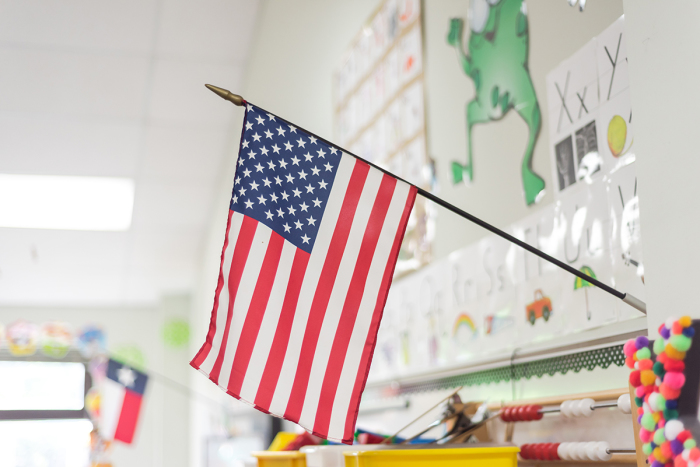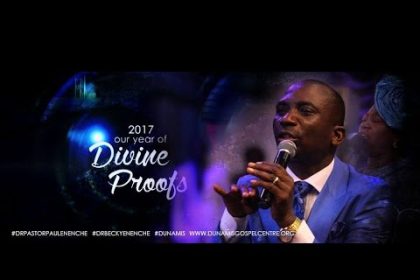
A newly released report shows that the American public has mixed feelings about integrating religion into multiple aspects of life, with most Americans supporting chaplains in public schools while opposing teacher-led school prayer.
The Associated Press released a poll on June 27 that surveyed public sentiment on a wide variety of topics related to education and religion. Conducted between June 5-9 in conjunction with the National Opinion Research Center at the University of Chicago, the survey asked 1,158 adults nationwide about their views on such matters.
The overwhelming majority of those surveyed describe freedom of speech (85%), freedom of religion (81%) and freedom of the press (77%) as “extremely/very important.” Only 64% said the same when asked about the separation of church and state.
A majority of respondents (58%) believe that public schools should be allowed to have religious chaplains providing services to students. Broken down by religious affiliation, support for chaplains in schools is highest among white Evangelical Christians (82%), followed by non-white Protestants (76%), Catholics (61%) and white Mainline Protestants (56%). A majority of those with no religious affiliation (59%) think that schools shouldn’t be allowed to have religious chaplains.
Conversely, most Americans (55%) do not support allowing public school teachers to lead their classes in prayer. While majorities of white Evangelical Christians (72%), non-white Protestants (63%), and Catholics (54%) approve of teacher-led prayer, most white Mainline Protestants (56%) and religiously unaffiliated Americans (84%) hold the opposite view.
A supermajority (60%) of those surveyed oppose the establishment of a mandatory period during the school day for private prayer and religious reading at public schools. While 64% of white Evangelical Christians and 57% of non-white Protestants expressed support for the idea, their opinion was canceled out by majorities of Catholics (54%), white Mainline Protestants (72%) and the religiously unaffiliated (76%).
When asked for their views on taxpayer-funded vouchers that let parents pay for tuition for their children to attend private or religious schools, a plurality (38%) of Americans expressed disapproval of the idea. Pluralities of non-white Protestants (48%), white Evangelical Christians (45%) and Catholics (41%) have the opposite position, while a plurality of white Mainline Protestants (43%) and the religiously unaffiliated (52%) do not support school vouchers.
Forty-five percent of Americans oppose religious exemptions to vaccine requirements for students who go to public schools. White Evangelical Christians are the only group where more people support (39%) than oppose the religious exemptions, with pluralities of non-white Protestants (36%), white Mainline Protestants (43%) and Catholics (47%), along with a majority of the religiously unaffiliated (60%), opposing them.
Similarly, 43% of respondents oppose allowing religious schools to become taxpayer-funded charter schools. While a plurality of white Evangelical Christians (41%) support letting religious schools become charter schools, the same percentage of non-white Protestants consider themselves neutral on the matter, while the identical share of Mainline Protestants oppose religious charter schools.
Thirty-five percent of Catholics are neutral on the issue, while the same percentage of Catholics do not support religious charter schools. A majority (61%) of the religiously unaffiliated oppose them.
A narrow majority of Americans (51%) believe that schools should be required to provide parents with lists of books available to students, with majorities of white Evangelical Christians (69%), non-white Protestants (56%), Catholics (55%) and white Mainline Protestants (53%) embracing this position, and a plurality (41%) of the religiously unaffiliated saying they neither agree nor disagree with the idea.
When it comes to what children are taught in schools, a plurality (38%) of Americans think religion has too little influence, along with an overwhelming majority of white Evangelical Christians (65%) and Catholics (54%), as well as a plurality (43%) of non-white Protestants.
A plurality of white Mainline Protestants (41%) believe that religion has “about the right amount of influence” on school curriculum, while a plurality (49%) of the religiously unaffiliated view religion as having too much influence on what children learn in public schools.
When asked if religion had too much or too little influence on President Donald Trump, a plurality of Americans (41%) and non-white Protestants (45%), as well as a majority of religiously unaffiliated Americans (59%), said religion has too much influence on the president. By contrast, a majority of white Mainline Protestants (57%) as well as a plurality of white Evangelical Christians (48%) and Catholics (41%) think religion has “about the right amount of influence” on Trump.
In response to a question asking about religion’s influence on the U.S. Supreme Court, a narrow plurality (37%) of Americans along with a majority of the religiously unaffiliated (52%) and a plurality of non-white Protestants (42%) described religion as having too much influence on the nation’s top court.
One-half (50%) of white Mainline Protestants and a plurality (40%) of Catholics said religion has “about the right amount of influence” on the justices, while a plurality (45%) of white Evangelical Christians think religion has “too little” influence on the Court.
Ryan Foley is a reporter for The Christian Post. He can be reached at: ryan.foley@christianpost.com








